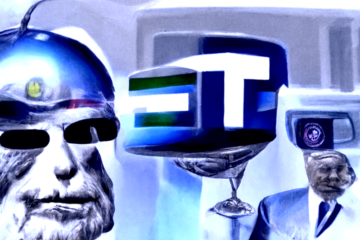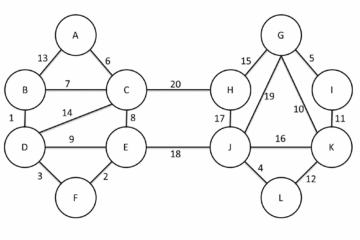Hell Divers is the next gen game I’ve been waiting for, and it comes with none of the next gen shenagins I’ve come to expect. It is a great example of connectivity without ‘exploitationware‘.
In 2003, towards the end of his run with Future Publishing, Terry Stokes came up with a cover for Edge Magazine that really stuck with me.

Edge Issue 122 (2003)
While I can’t remember the gist of the content, the front cover stuck with me. A generation of consoles (GameCube, PS2, Xbox) had been out for over 2 years and were starting to gain momentum. Developers had started to get the hang of these machines, Xbox live had just hit the UK and we were truly being wowed by the graphics and content you could store on DVD. I remember the front cover well, I remember because me and my friends all picked up a copy each and proclaimed ‘yes we are bored!’
The truth is that as generations of gaming consoles come and go we get older too. The boredom that I felt with my friends was not a problem of the industry getting old but trying nothing new, it was that the industry not catering to our demographic, more precisely the tools and communication technology our demographic was getting used to. While you may think that 100 hours gaming epics would be perfect with college kids with lots of time on their hands, we were all excited about what the future would bring, getting part times, getting fancy mobile phones (with snake 2!), using MSN, becoming connected. We wanted to be together and naturally we got bored on our own. While online gaming was certainly not new in 2003, and not even new to consoles, I would say it was Xbox Live that brought us together and kept us gaming. I still have my old magazines, I saw that front cover recently and remembered how we were getting bored of video games, because there was no excuse to be alone and I remember fondly the late nights of Rainbow Six 3 we had when Xbox live changed that.
Today I also feel bored of video games. Funnily enough I feel like I did in 2003, really alone and it is a funny feeling because games have never been more connected. Pick a game at random and the chance is that there will be a very clear social element. When you start a game of Candy Crush, it tells you were your friends are. HayDay compares your farms with friends. Destiny makes you very aware you don’t have the guns your friends do because you couldn’t spend 15 hours doing a stupid mission over the weekend. I feel alone because this constant comparison is sending a message: ‘Keep up!’. For those of us who don’t have the time there is a different message: ‘Pay up!’. If you don’t have the time to invest to beat your friends you can always pay for the leverage. This constant flow of information telling me I need to pay for the same DLC, powerups, weapons, barns has become what nextgen is all about. It works for developers precisely because we do pay up. We use the same techniques in the education system and call it gamification. The ‘engagement rate’ is up, but at what cost? We’ve never been more connected but it is so competitive it makes me feel so alone.
A while ago I invested in a Playstation game called Hell Divers, it is not an expensive game, when I last checked it was £10 on the PSstore. At £10 I was expected a full on assault of paid DLC and ‘pay to keep up’ options but was pleasantly surprised. To sum it up quickly: It is an online coop game where you battle bugs like think Starship Troopers. The online options work like so: The £10 allows the game to be cross platform with controls similar on each machine, no matter what machine you have access to you can play with your friends. There is a leader board which shows how well the community is doing as a team. You can’t buy upgrades with cash, only in game experience; these upgrades give you abilities that help you give other players a hand up. All DLC is free.
It doesn’t sound impressive because it’s all things you would expect a game in 2015 to do, the subtle differences are that the online experience isn’t pitting your social standing against others, making you pay when you lag behind. It is a full on cooperative game, not just in the game play, but in the way it makes you think about your online comrades (It also helps that the game is really good..).
These subtly chances to gaming mechanisms, the ‘how do we complement each other’ instead of ‘how do we differ’ make the world of difference to how you feel playing the game, I really appreciate the developer not taking the easy option of micropayments for better weapons and will certainly be on the lookout for their next project. I think the gamification of educational processes, or perhaps just educational processes in general could learn from this.
Do we always have to be in competition?

This is what Hell Divers looks like, I couldn’t screenshot myself playing it because I don’t have a PS4 out. That’s OK tho because the game still lets me play by accessing on another platform. Source: Gamespot



0 Comments